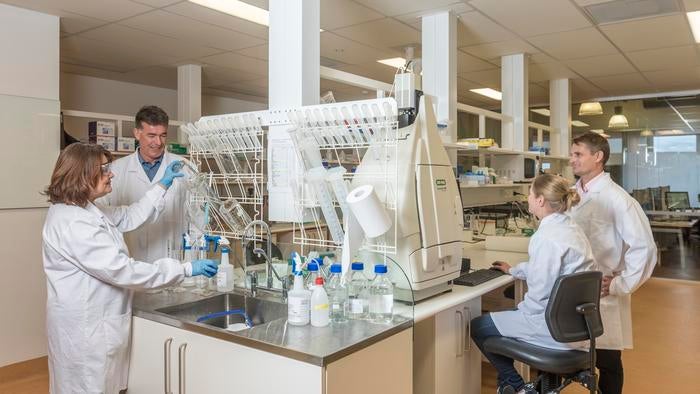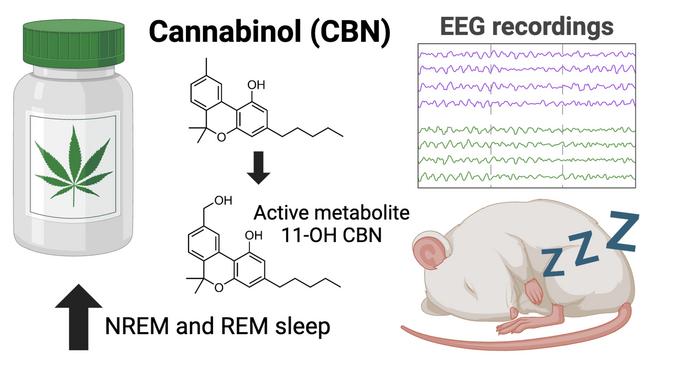Study confirms what cannabis users have long known
Study may lead to new treatment for sleep disorders like insomnia, researchers say
Your support helps us to tell the story
From reproductive rights to climate change to Big Tech, The Independent is on the ground when the story is developing. Whether it's investigating the financials of Elon Musk's pro-Trump PAC or producing our latest documentary, 'The A Word', which shines a light on the American women fighting for reproductive rights, we know how important it is to parse out the facts from the messaging.
At such a critical moment in US history, we need reporters on the ground. Your donation allows us to keep sending journalists to speak to both sides of the story.
The Independent is trusted by Americans across the entire political spectrum. And unlike many other quality news outlets, we choose not to lock Americans out of our reporting and analysis with paywalls. We believe quality journalism should be available to everyone, paid for by those who can afford it.
Your support makes all the difference.Australian scientists have found a constituent of cannabis improves sleep, providing conclusive evidence for claims made regarding the plant’s calming effects.
Their study, published in the journal Neuropsychopharmacology, may lead to new drugs to treat sleep disorders like insomnia.
The scientists used objective measures of sleep to show, for the first time, that a cannabis component known as cannabinol, or CBN, improves sleep in rats.
“For decades, cannabis folklore has suggested that aged cannabis makes consumers sleepy via the build-up of CBN, however, there was no convincing evidence for this,” study lead author Jonathan Arnold from the University of Sydney said.
“Our study provides the first objective evidence that CBN increases sleep, at least in rats, by modifying the architecture of sleep in a beneficial way.”

CBN is an end product of cannabis’ main intoxicating constituent, delta9-tetrahydrocannabinol, or THC.
THC gets converted into CBN over time, with older cannabis containing higher levels of this compound.
The consumption of older cannabis has been associated in folklore with a sleepier cannabis “high”.
Highly purified CBN products are already sold as sleep aids in the US, even though there has been little high-quality scientific evidence to support this – until now.
In the new study, researchers tested the effects of purified CBN on sleep in rats.
They used advanced health monitoring technology to gain insights into the rats’ sleep patterns, including the amount of sleep phases such as REM and NREM.
NREM is a deep sleep state that promotes physical recovery and strengthens memories, while REM is linked to dreaming and processing of emotions.
“CBN was found to increase both NREM and REM sleep, leading to increased total sleep time, with a comparable effect to the known sleep drug zolpidem,” Dr Arnold explained.
CBN was also not intoxicating to the rats, unlike its parent molecule THC which is known to activate the brain’s CB1 cannabinoid molecules.

Researchers found that a molecule called 11-OH CBN, formed in the body from the metabolism of CBN, affected the brain areas related to sleep.
“This provides the first evidence that CBN indeed increases sleep using objective sleep measures. It was a surprise that CBN metabolism in the body can yield a much greater effect on cannabinoid CB1 receptors than the parent molecule CBN, which has much more limited activity,” Dr Arnold said.
“Whilst the study encourages further development of the cannabinols for sleep, it also underscores the need for a nuanced approach that takes heed of the narrow dosing window for pro-sleep effects,” scientists wrote in the study.
They hope for further research to validate these results in humans.
“Our research encourages further basic and clinical research on CBN as a new treatment strategy for sleep disorders, including insomnia,” Iain McGregor, another author of the study, said.
“Our clinical study only administered CBN on a single occasion. A trial on a larger scale, that includes repeated dosing, is the logical next step.”

Join our commenting forum
Join thought-provoking conversations, follow other Independent readers and see their replies
Comments